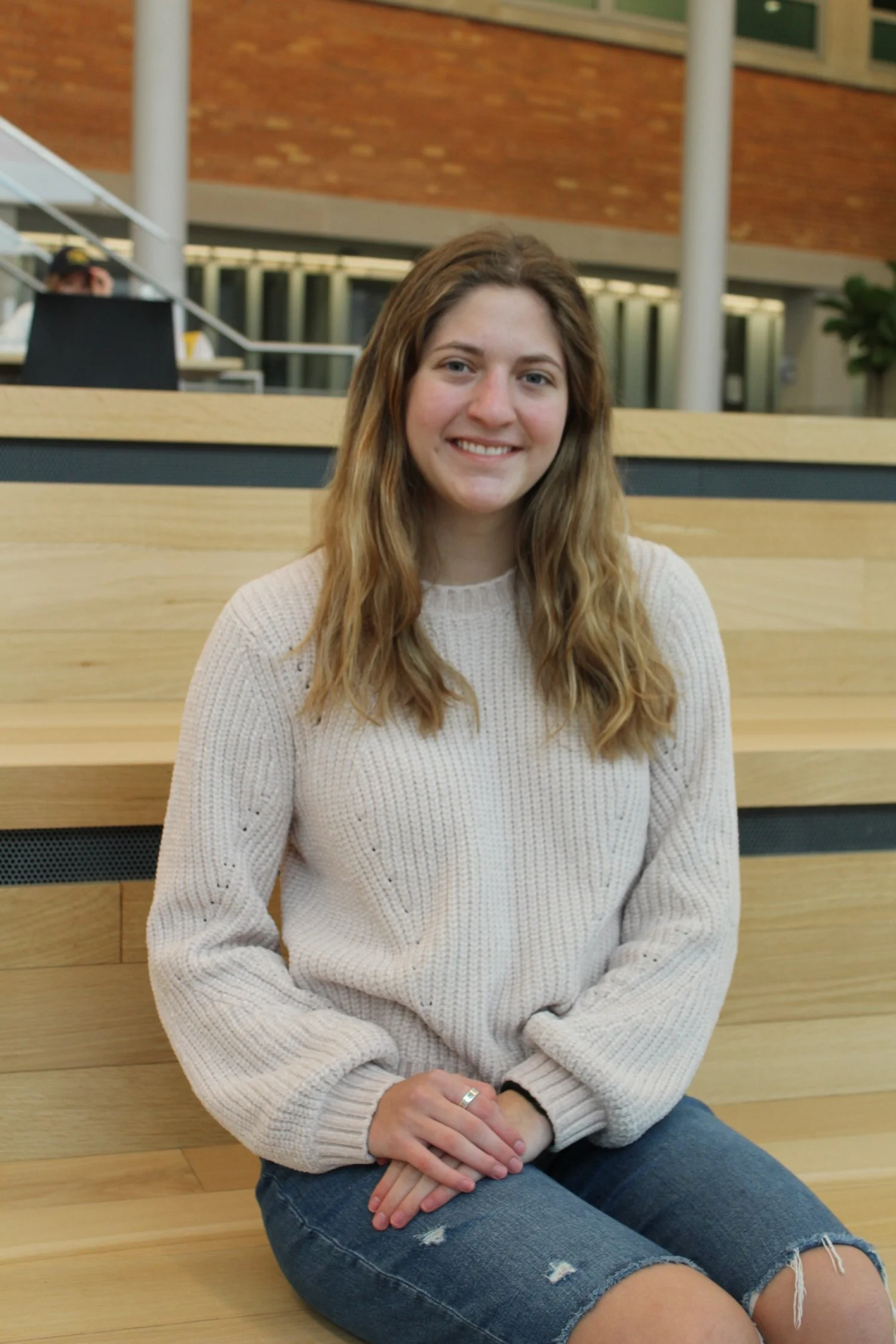Caroline M.
Photography by Rhianna Womack
If you’re reading this, your struggles are valid.
When I was packing and saying my goodbyes as I left my family, including my immunocompromised father, to attend my freshman year at Michigan, I was ecstatic to get away from the strict COVID restrictions I had been carefully obliging by for the past six months. While I completely understood the need for safety, I was thrilled to be able to hang out in groups of 10+, live in a dorm with thousands of students, and do it all without the risk of hurting my family. I didn’t know how badly COVID would later affect my own life. While not to the extent of the many families who have been greatly impacted by deaths and hospitalizations of loved ones, COVID still had a profound effect on my mental and physical well-being.
When I caught COVID in September of my freshman year, I had the tiniest sniffle and a slightly sore throat that could’ve been attributed to karaoke with my new friends the weekend prior. Most importantly, I experienced the complete loss of my taste and smell. As I spent what seemed like endless days in quarantine, I DoorDashed tasteless meals that I used to crave in the hopes they would bring me some joy while locked alone in a hotel room. Many of my friends who had COVID before reassured me that the taste and smell would return within a couple of weeks. I knew that I could tough it out, as weird of a phenomenon as it was.
However, it’s now near the end of my sophomore year and I still have almost a complete absence of taste and smell. What I can taste tastes completely different than how it used to for my entire life. Onions, garlic, and other seasonings, which used to be my favorite additions to savory meals, now taste like what my fellow COVID long haulers or sufferers of parosmia (a type of smell disorder in which odors become distorted) can describe only as rotting flesh. No, that’s not an exaggeration. Living in my sorority house with my best friends, which was an experience I have anticipated for years, has too many times turned unbearable. I cannot make my own meals, so I am constantly faced with the basic seasonings that taste and smell so repulsive to me.
Beyond my altered eating habits, it has been extremely isolating not to be able to enjoy meals with my friends as I once did. I don’t want to ask my friends not to eat their favorite foods around me. Similarly, it hasn’t gotten easier for me to watch my family and friends eat what used to be my favorite foods—Chicago deep-dish pizza, fried rice, garlic bread—with my nose plugged and gagging while I eat toast and buttered pasta.
While I encourage myself to put my struggles in perspective, considering the vast loss in our society associated with the pandemic, I do not want to disregard the harm that parosmia has put on my enjoyment of foods, something so closely tied to human joy—gathering together for meals, trying new restaurants, investing in my own nutrition, and physical well-being. Whenever someone sends me the burnt orange Tik-Tok, or the essential oil smell therapy, it takes all I have to not throw my phone at a wall. I’ve tried every solution on the internet, gone to an ENT, and even tried hypnosis, all to no avail. I’m left wondering if I ever will be able to enjoy food when it once was something that made me happiest and brought me excitement and delight. What used to be a natural source of connection and love—something that has brought me so close to my loved ones, sharing meals and cooking, now fills me with anxiety and dread.
Before a meal out, my mind is crammed with thoughts about what my dining-mates will think of me. Will they think I am picky for asking for modifications on the most basic thing on the menu? Will they be offended when I accidentally make a face when a waft of onion from a passing waiter hits my nose? These are thoughts that surround me three times a day, every day, unstoppable and all-encompassing. Perhaps what is worse is that, while I have received pity and sympathy from so many, parosmia is so unknown and unresearched, and unless one has experienced it, they cannot possibly understand this strange and, at times agonizing phenomenon.
While my parosmia has no doubt affected my life in profound and unusual ways that I could never have predicted before the pandemic, I have found ways to gain support from fellow sufferers. I have turned to online forums, where people compare their problem foods and potential solutions. I still have not found one that works for me yet, but knowing that people are finding answers and have experienced this phenomenon for as long as I have gives me hope, a small win. My community of fellow parosmiacs, while small, is strong and brings me an optimistic attitude, one I could not find from my loneliness in the condition before finding this group. I am not sure if my condition will ever completely go away, but I am positive that I have this community of family, friends, and people with parosmia worldwide that is here for me and helping me through it. If you’re reading this, your struggles are valid.
Caroline M., University of Michigan
Connect With Us
To follow IfYoureReadingThis at UMich on Instagram, get in touch with our chapter, and learn about more resources available to University of Michigan students, visit our chapter’s homepage.

